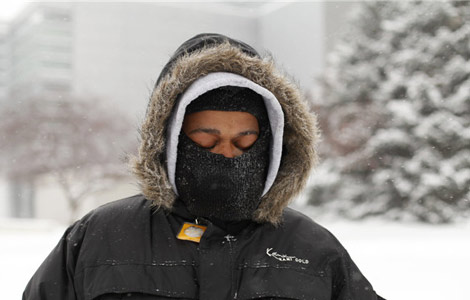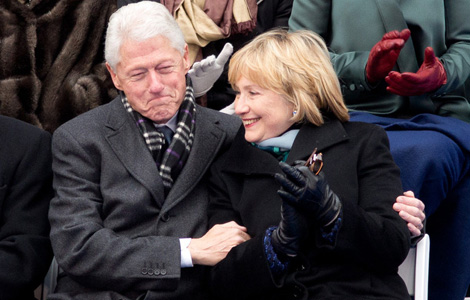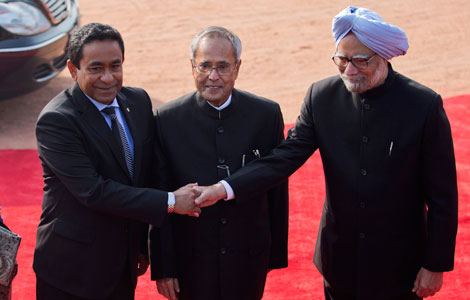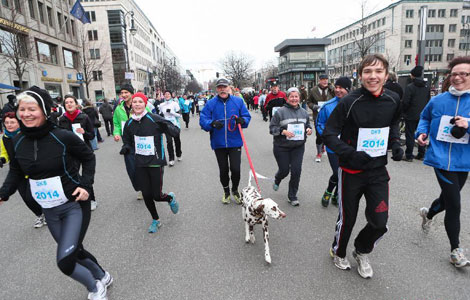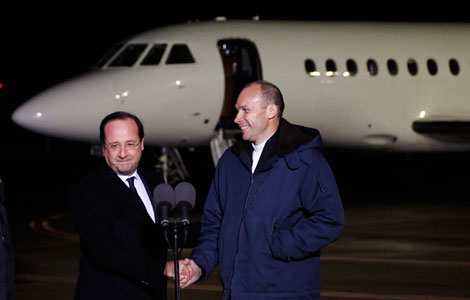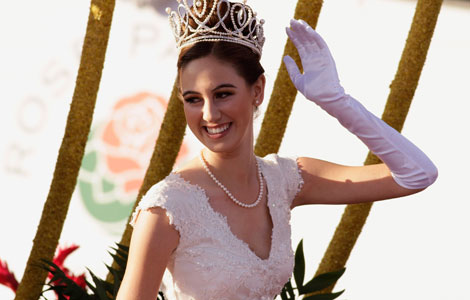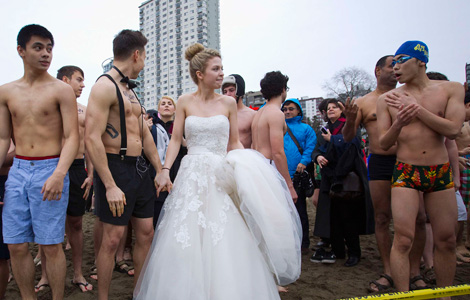

WASHINGTON - For Democrats and Republicans, the early stages of the 2016 US presidential contest are worlds apart.
Many Democrats already view Hillary Rodham Clinton as a quasi-incumbent, someone who could take the reins from President Barack Obama. The former secretary of state has made no decisions about her political future but has done little to dampen enthusiasm about another presidential campaign, traveling the country making speeches and preparing to release another book.
Republicans have no clear front-runner and expect a crowded primary field that could include fresh-faced candidates like New Jersey Gov. Chris Christie, Kentucky Sen. Rand Paul and Florida Sen. Marco Rubio. For a party that typically backs established politicians, 2016 could be the most jumbled Republican White House campaign in a generation.
As the Obama era nears its final congressional elections in November, the campaign to succeed him has already begun: Prospective candidates on both sides have been quietly courting donors, taking steps to build an organization and making scouting trips to early voting primary states like Iowa, New Hampshire and South Carolina. The official starting line, however, is likely a year away.
Next year will be about building the foundations of a campaign, compiling a policy agenda and raising money for House, Senate and gubernatorial candidates who could become future allies.
And each side faces its own intra-party divisions.
Republicans are in the middle of a feud that pits establishment figures against conservative tea party adherents. Democrats run the risk of souring on Obama's brand?- polls have shown a decline in his popularity since his re-election?- and face a brewing split between liberals and centrists.
For Democrats, the presidential race hinges on whether Clinton runs again.
The former New York senator and first lady to President Bill Clinton has dominated early polls among Democrats, with Vice President Joe Biden a distant second. There is no obvious challenger from the left, considering Massachusetts Sen. Elizabeth Warren's vow to serve her full six-year term.
Potential candidates like Maryland Gov. Martin O'Malley and former Gov. Brian Schweitzer of Montana have visited early voting states but remain largely unknown to most voters. Some liberals might encourage former Vermont Gov. Howard Dean to run again, but Clinton has the potential to unite the party.
Clinton's movements will be closely watched next year. She avoided most political activity in 2013 but is expected to be a top draw at Democratic fundraisers. The spring release of her memoir about her State Department years will include a national book tour, allowing her to discuss themes that might precede a presidential campaign. Until she announces her decision, every word will be parsed for clues.
"It's maybe an unprecedented situation, with Hillary Rodham Clinton being as strong as an incumbent president running for re-election," said Democratic strategist Tad Devine.
If Clinton decides not to run, the Democratic primary could turn into a free-for-all.
Biden could inherit many Obama and Clinton supporters, but a Clinton-free race would open the door to candidates like O'Malley, who has assembled a record admired by many liberals, New York Gov. Andrew Cuomo, a fundraising powerhouse, and Warren, who would be pressured by progressives to run.
Republicans face much different terrain.
During the past half-century, the Republicans have rarely nominated a candidate who has not previously run for president?- the exceptions are Gerald Ford in 1976 and George W. Bush in 2000.
That could change in 2016.
Christie, the new chairman of the Republican Governors Association, boosted his national profile in November by easily winning a second term. Christie's team contends he wrote the playbook for Republican success in 2016 by appealing to strong percentages of women and minorities.
Former Florida Gov. Jeb Bush, who left office in 2007, commands attention from donors and party leaders as the brother and son of presidents. His presidential ambitions are unclear, however, and next year could offer a better indication of his intentions.
Bush's decision could weigh heavily on Rubio, who tried but failed to get congressional Republicans to support sweeping immigration reforms. Few expect Rubio to challenge Bush in a presidential primary, but the Cuban-American senator is expected to travel the country next year in support of House and Senate candidates.
Paul has been among the most active Republicans exploring a presidential campaign, and he could inherit the loyal supporters of his father, libertarian hero and former Texas congressman Ron Paul. Texas Sen. Ted Cruz, in office just a year, has built a strong following in conservative circles.
Many Republicans are watching Wisconsin Rep. Paul Ryan, who impressed as Mitt Romney's youthful vice presidential running mate in 2012 and recently negotiated a budget deal with Democrats.

